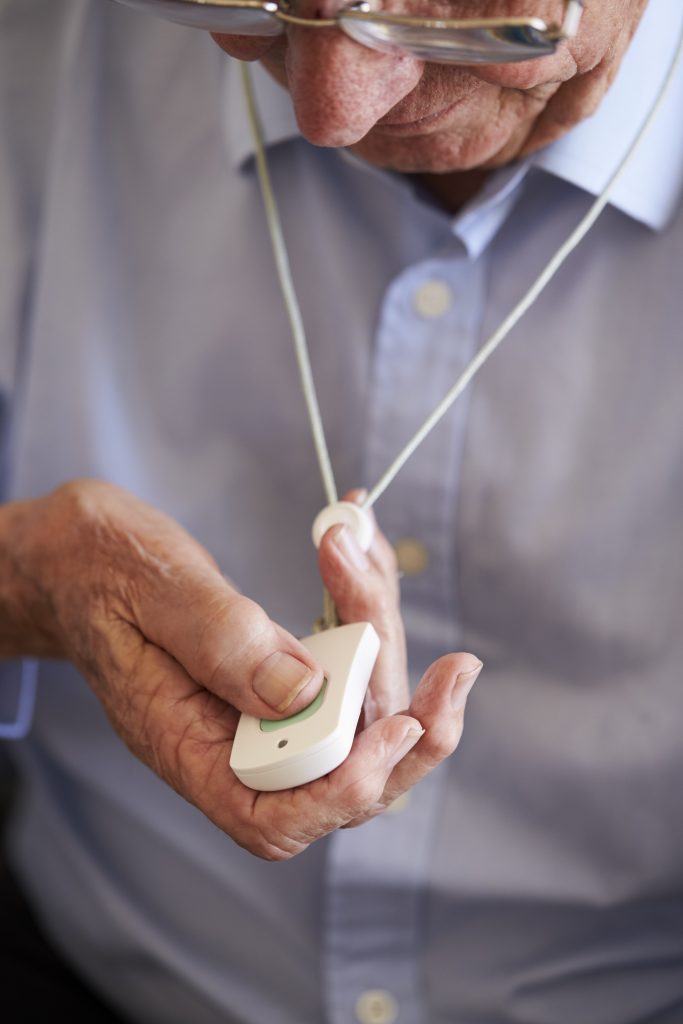
Rearview shot of a group of seniors sitting together on a bench out in the garden
This month we spoke to Irene, a Resident Services Coordinator at an independent living village. This is a retirement village for people aged over 60 who are able to live on their own in an apartment, unit or townhouse but who want the benefits of living in a community that provides services and amenities such as social activities, maintenance, gardening, and security.
Give us an overview of what you do and what your role entails.

I am responsible for helping people move into or out of the village. I inspect units and townhouses to identify issues, arrange maintenance, repairs and cleaning with contractors, and finalise forms for pay outs, etc. When new residents move in I provide them with a welcome pack containing information about the village (from village rules to beauty services). In particular I ensure that they understand emergency procedures, that they know where the fire escape is, and that their personal alarm is set up and working. I am also responsible for resident well-being, providing advice to residents and their families around accessing support services, and regularly checking in with more vulnerable residents. Lastly, I assist the village manager with a range of tasks from compiling annual statistics to event management.
How much of your job involves communication? Is it an important part of your job? Roughly how many work-related conversations do you have in a normal working day, and who with?
My whole job is about communication, whether speaking to people or writing emails, instructions, minutes and reports. I communicate with residents, service providers and contractors, family members, members of the public, members of the village team and other members of the organization I work for. I couldn’t tell you how many work-related conversations I have in a day. Even conversations over lunch can be work related or lead to developing a shared understanding between team members.
How do you use English differently at work than at home?
At work my usage of English has to be more professional as I represent an organization, and I need to communicate clearly and simply with everyone. I still have to be friendly, but you have to remember your boundaries. At home there can be a shared understanding and you can get away with (or think you can get away with) cutting corners or not being as considerate as you might be at work. At home I swear more and can use a bit more colloquial English.
Prior to this role I had been a public servant for over 30 years. It is hard at times not to talk and write like a public servant at home and in my new role.
Are there any words or shorthand that are specific to your trade? Did you learn them on the job? When do you use jargon? When do you avoid using it?

There is a bit of jargon, especially around government support and accessing government funded services. Different residents require different levels of care, and those care levels and the methods used to assess them all have specific names and acronyms: The Commonwealth Home Support Programme (CHSP) is entry level care/support and is managed by the client. Home Care Packages are for more complex needs and are managed by a provider who coordinates services for a management fee. A RAS (regional assessment service) assessment determines access to the CHSP, where as an ACAT (aged care assessment team) assessment assesses access to Home Care Packages, respite care, support at home after hospitalization and access to residential aged care.
We also have a bit of shorthand around village management and policies and procedures, like GSL for general service levy. Sometimes you even forget what the abbreviation stands for. Some of it is learnt on the job but others are learnt as part of vocational training.
How does the way you use English change according to who you are speaking with at work?
You try to avoid jargon when speaking to residents and their families unless it is necessary. When helping residents and their families to access government funded services, you need to use the correct terminology so that it is clear what assessment they need to ask for so that they receive the right support, enabling the resident to maintain independence for as long as possible.
In your job, how important is non-verbal communication?
Non-verbal communication can be very important. Some residents, especially those with dementia or other disabilities (hearing loss, etc.) need to feel secure and comfortable. This can sometimes be achieved with a smile, holding their hands, supporting them while they walk or showing them where something is.
What problems would a non-native, intermediate English speaker have if they tried to do your job?
A non-native, intermediate English speaker would be able to do my job but there could be issues with making themselves easily understood. Older ears/brains don’t adapt to different accents easily. The written aspects of the job can be learnt, and there is always a team member you can ask.
And now for a few fun questions…
What did you want to be when you were growing up?
A mortician or a meat inspector, but there wasn’t much support/encouragement for girls to do that sort of thing when I was growing up.

What do you consider your greatest achievement?
Apart from having two lovely girls, my greatest achievements were living as an exchange student on Bornholm Island, in Denmark in 1981 and working as a peace monitor on Bougainville, Papua New Guinea, for six months in 1999.
Where do you see yourself in 5 years?
Retired from paid work and having time to do all the things I don’t get to do now.


